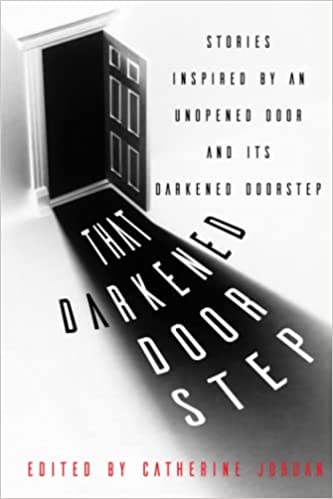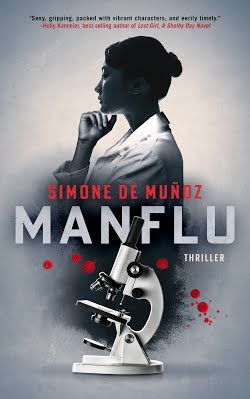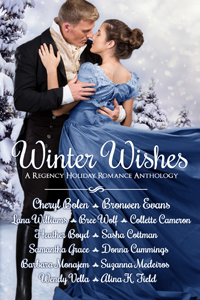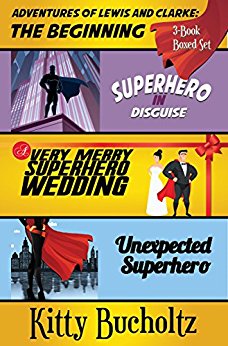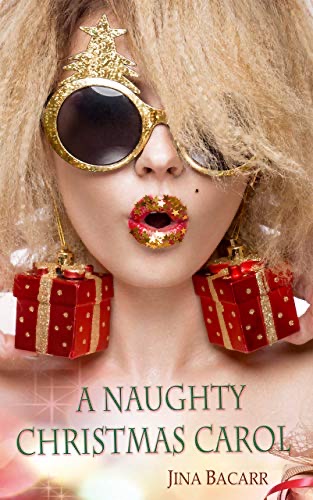FLOWERS IN THE ATTIC: A Terrifying Tale of Backlists
March 15, 2011 by A Slice of Orange in category Archives tagged as backlists, Digital only publishing, strategy, writing processOne of the strangest books ever written was Flowers in the Attic (V.C.Andrews). There is lots to talk about with this book (incest, misguided religiosity, family acceptance and love) but those are topics better left to a book group discussion.
What really terrified me was the premise of that book. A mother locks her kids in the attic and forgets about them. The children languish, nearly dying in that attic, until they rise up and confront her. They are no longer willing to be locked away. And that brings me to the topic of the day: books, backlists and half finished manuscripts locked in our creative attics.*
My friend and fellow author Brian Drake deals beautifully with the subject of discarded manuscripts and whether the are salvageable in his blog Bringing Back the Dead , so I would like to focus on the opportunities and challenges traditionally published authors face when dealing with their backlist.
My own career has been neatly split in two distinct genres: Romance/women’s fiction and legal thrillers/police procedurals. Over 26 years I had my rights reverted to all 23 of my novels as soon as I was contractually able. I had no idea then that rights reversion would turn out to be the smartest move I ever made. In control of my work, I was perfectly positioned to digitally publish, POD or self-publish my literary inventory. I chose to concentrate on digital publishing, taking advantage of the explosion of E-readers.It took a year to scan all my thrillers, create covers, edit for scanning errors, properly format and upload my 11 book backlist. The effort was worth it.
My faith in my thrillers has been rewarded by good sales, excellent reviews and a growing following. I realized, though, that I had the advantage of name recognition as my fan base moved from paper to IPads, Nooks and Kindles.Spurred on by this clear opportunity, it seemed logical to follow the same strategy with my early books (romance and single title contemporary women’s fiction). Yet when I went to my literary ‘attic’ and opened the door I didn’t exactly find my ‘flowers’ in full bloom.
The truth was that some of my work should not be resurrected. The very first book I wrote was creatively tentative, predictable and descriptively overwrought. This was a far cry from the intricately plotted books I penned later in my career. In short, it was clear I had learned a lot between the first book and the last. I tried to convince myself the craft didn’t matter. Books were books and someone would like these. But I also realized many more people would be put off by these early efforts. That would impact both my reputation and my sales. I might never be able to convince those readers to give me another chance. When I weighed the pros and cons it came down to this: would I be proud to have these first books in the hands of an avid reader? For three books, the answer was no.
I want to make it perfectly clear, I am not ashamed of anything I have written. All my books were published by respected New York publishers. Each represents my best effort at that stage of my career but some of those books are not representative of the author I have become. When a reader chooses to sample my early work, I want them to hear my unique voice (I had no POV in the three I will not re-publish). I want the reader to be engaged in a multi-layered story (my early work is linear). I want a reader to get to know well-drawn characters that live in a complete universe (my early characters were two dimensional and their universe limited).
In my memory, I believed my attic was full of fabulous books; in reality, I had stored away my building blocks. I am wise enough now to recognize that the reader’s experience is more important than my ego. Just because I wrote a book twenty years ago does not make the work viable today unless it clearly shows emerging strengths. If I republish my initial stumbling as I tried to find my literary feet, I run the risk of alienating a reader rather than piquing their curiosity. I want each book to show how I have grown as a writer. Bottom line, if any of my work might waste a reader’s time or money it should be set aside.
So, as much as it pains me to admit it, as hard as it is to close that door, there are some flowers that need to stay in my attic. I am ever so grateful that they are there to remind me of where I’ve been, how far I’ve come and that writing is hard work. I might visit them once in a while but, like V.C. Andrews has shown me, sometimes there are reasons you need to lock the door and walk away.
*These thoughts can be applied to any creative effort: painting to pottery, music to manufacturing.
1 0 Read moreAffiliate Links
A Slice of Orange is an affiliate with some of the booksellers listed on this website, including Barnes & Nobel, Books A Million, iBooks, Kobo, and Smashwords. This means A Slice of Orange may earn a small advertising fee from sales made through the links used on this website. There are reminders of these affiliate links on the pages for individual books.
Search A Slice of Orange
Find a Column
Archives
Featured Books
THE DARKEN DOORSTEP
When faced with a darkened doorstep, think before you walk through.
More info →WINTER WISHES: A REGENCY HOLIDAY ROMANCE ANTHOLOGY
Stories that will sweep you away . . .
More info →ADVENTURES OF LEWIS AND CLARK BOXED SET
She thought marriage would be sex, laundry, and a mortgage.
Girl, was she wrong.
A NAUGHTY CHRISTMAS CAROL
What if Scrooge was a tall, dark, and oh so sexy Wall Street billionaire?
More info →Newsletter
Contributing Authors
Search A Slice of Orange
Find a Column
Archives
Authors in the Bookstore
- A. E. Decker
- A. J. Scudiere
- A.J. Sidransky
- A.M. Roark
- Abby Collette
- Alanna Lucus
- Albert Marrin
- Alice Duncan
- Alina K. Field
- Alison Green Myers
- Andi Lawrencovna
- Andrew C Raiford
- Angela Pryce
- Aviva Vaughn
- Barbara Ankrum
- Bethlehem Writers Group, LLC
- Carol L. Wright
- Celeste Barclay
- Christina Alexandra
- Christopher D. Ochs
- Claire Davon
- Claire Naden
- Courtnee Turner Hoyle
- Courtney Annicchiarico
- D. Lieber
- Daniel V. Meier Jr.
- Debra Dixon
- Debra H. Goldstein
- Debra Holland
- Dee Ann Palmer
- Denise M. Colby
- Diane Benefiel
- Diane Sismour
- Dianna Sinovic
- DT Krippene
- E.B. Dawson
- Emilie Dallaire
- Emily Brightwell
- Emily PW Murphy
- Fae Rowen
- Faith L. Justice
- Frances Amati
- Geralyn Corcillo
- Glynnis Campbell
- Greg Jolley
- H. O. Charles
- Jaclyn Roché
- Jacqueline Diamond
- Janet Lynn and Will Zeilinger
- Jaya Mehta
- Jeannine Atkins
- Jeff Baird
- Jenna Barwin
- Jenne Kern
- Jennifer D. Bokal
- Jennifer Lyon
- Jerome W. McFadden
- Jill Piscitello
- Jina Bacarr
- Jo A. Hiestand
- Jodi Bogert
- Jolina Petersheim
- Jonathan Maberry
- Joy Allyson
- Judy Duarte
- Justin Murphy
- Justine Davis
- Kat Martin
- Kidd Wadsworth
- Kitty Bucholtz
- Kristy Tate
- Larry Deibert
- Larry Hamilton
- Laura Drake
- Laurie Stevens
- Leslie Knowles
- Li-Ying Lundquist
- Linda Carroll-Bradd
- Linda Lappin
- Linda McLaughlin
- Linda O. Johnston
- Lisa Preston
- Lolo Paige
- Loran Holt
- Lynette M. Burrows
- Lyssa Kay Adams
- Madeline Ash
- Margarita Engle
- Marguerite Quantaine
- Marianne H. Donley
- Mary Castillo
- Maureen Klovers
- Megan Haskell
- Melanie Waterbury
- Melisa Rivero
- Melissa Chambers
- Melodie Winawer
- Meriam Wilhelm
- Mikel J. Wilson
- Mindy Neff
- Monica McCabe
- Nancy Brashear
- Neetu Malik
- Nikki Prince
- Once Upon Anthologies
- Paula Gail Benson
- Penny Reid
- Peter J Barbour
- Priscilla Oliveras
- R. H. Kohno
- Rachel Hailey
- Ralph Hieb
- Ramcy Diek
- Ransom Stephens
- Rebecca Forster
- Renae Wrich
- Roxy Matthews
- Ryder Hunte Clancy
- Sally Paradysz
- Sheila Colón-Bagley
- Simone de Muñoz
- Sophie Barnes
- Susan Kaye Quinn
- Susan Lynn Meyer
- Susan Squires
- T. D. Fox
- Tara C. Allred
- Tara Lain
- Tari Lynn Jewett
- Terri Osburn
- Tracy Reed
- Vera Jane Cook
- Vicki Crum
- Writing Something Romantic
Affiliate Links
A Slice of Orange is an affiliate with some of the booksellers listed on this website, including Barnes & Nobel, Books A Million, iBooks, Kobo, and Smashwords. This means A Slice of Orange may earn a small advertising fee from sales made through the links used on this website. There are reminders of these affiliate links on the pages for individual books.

